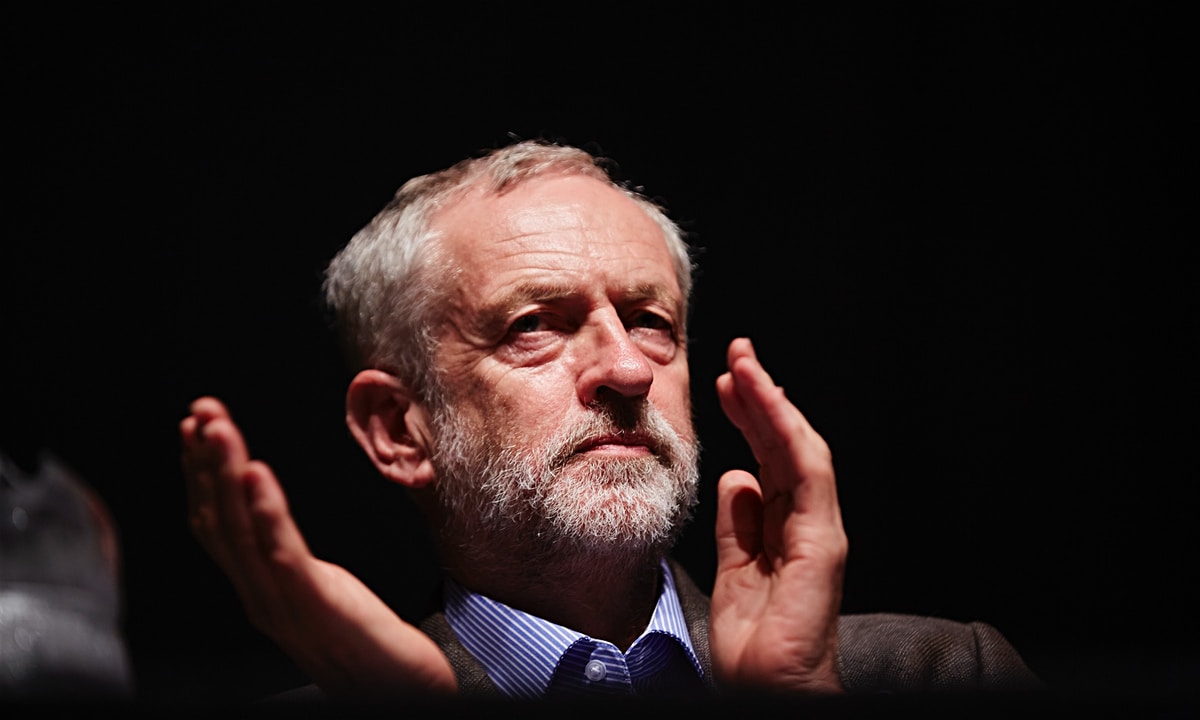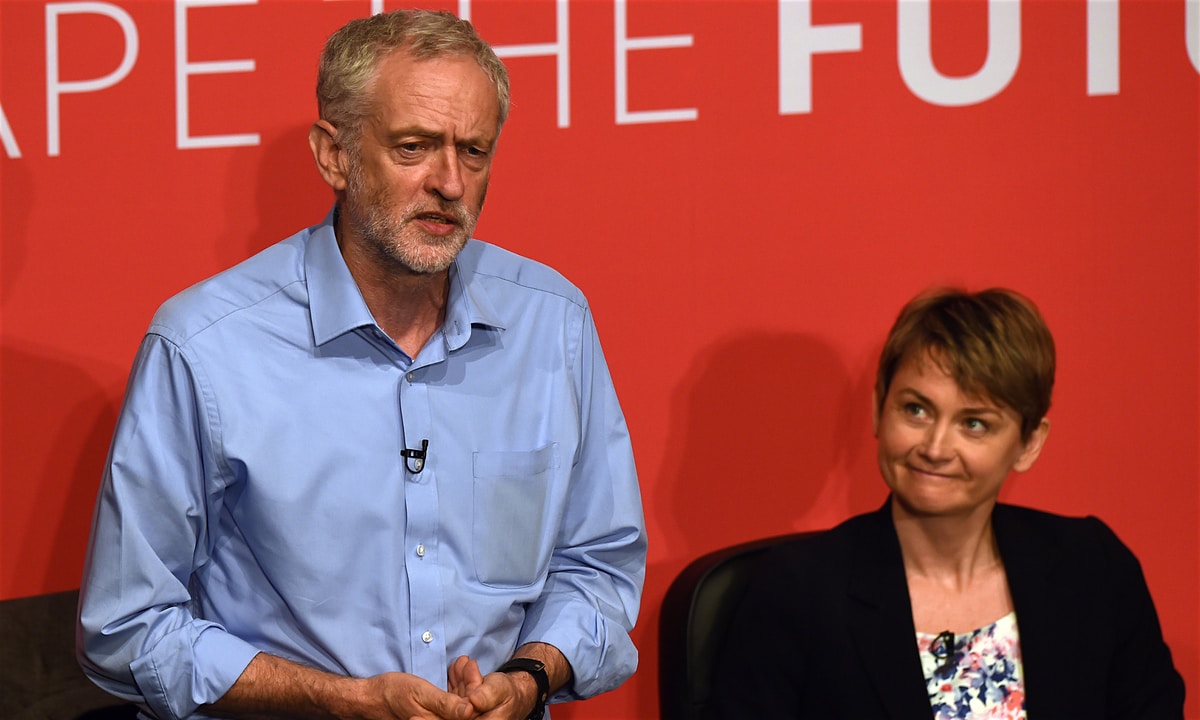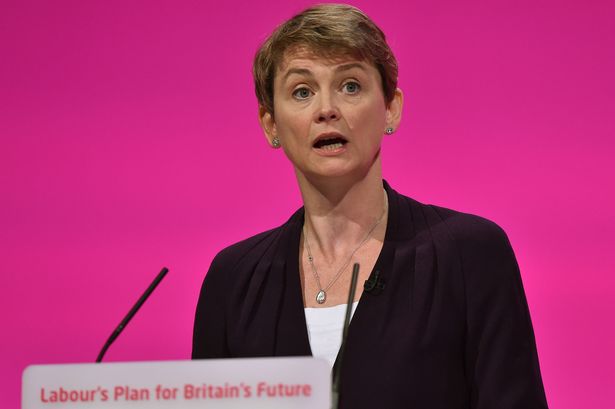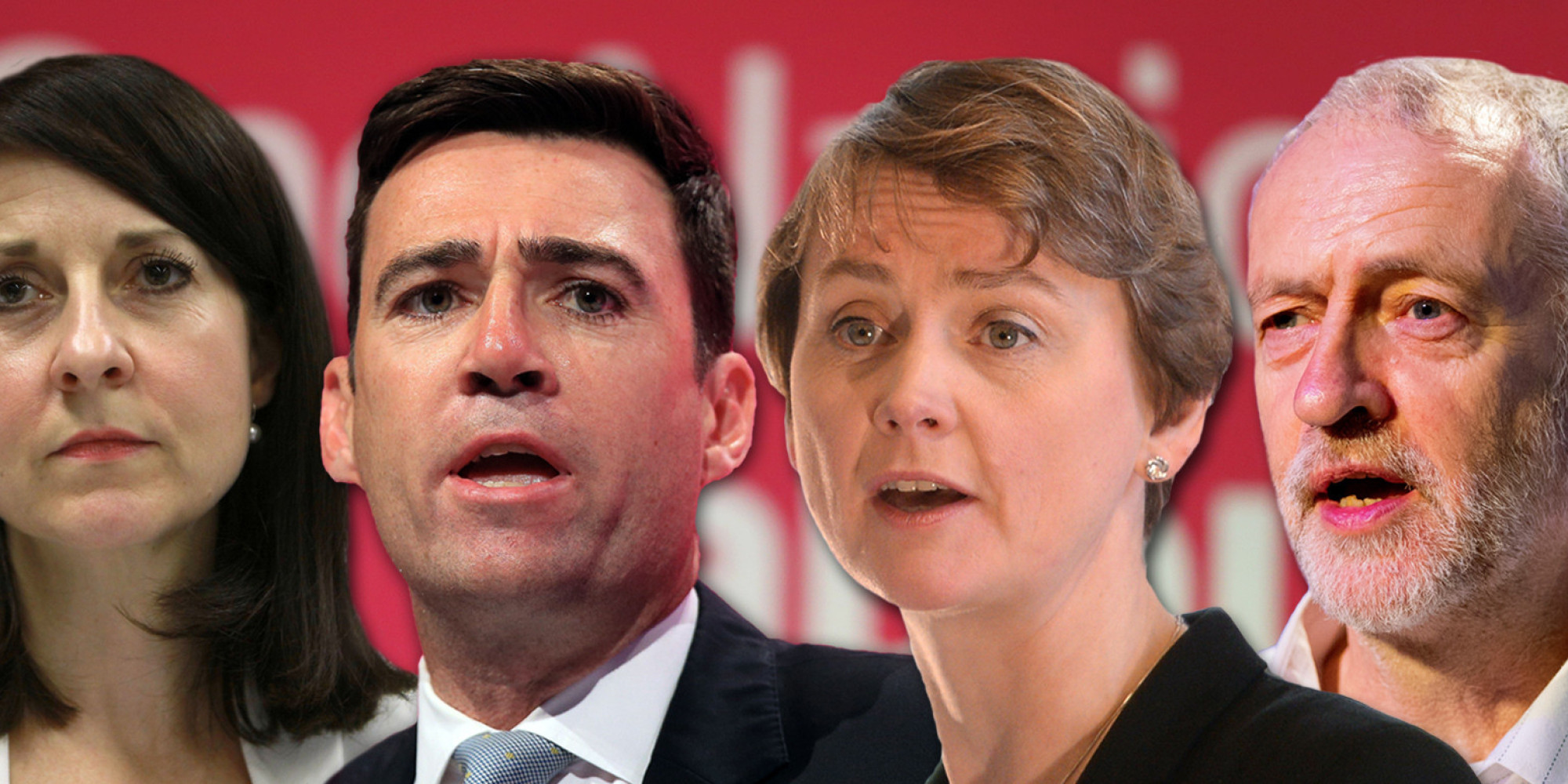Edit
Labour's Leadership Economics Part Deux
The debate on Labour's future economic policy has been surprisingly dominated by Jeremy Corbyn & the anti-austerity economics at the centre of his campaign. Until now the response has been around credibility, but Yvette Cooper made a major speech over the weekend in which she argued an alternative.
- Yvette Cooper has made two speeches on the Economy during the Leader's campaign, the most recent is more technical and more joined up. It is reported verbatim, (I think) in the Guardian,
 I will deliver a radical - and credible - Labour alternative to Tory austerity | Yvette CooperIt's the economy, stupid! That was the famous slogan written on the war room whiteboard in Bill Clinton's 1992 election campaign. It's just as relevant in Britain today and should be at the heart of our Labour leadership choice too.
I will deliver a radical - and credible - Labour alternative to Tory austerity | Yvette CooperIt's the economy, stupid! That was the famous slogan written on the war room whiteboard in Bill Clinton's 1992 election campaign. It's just as relevant in Britain today and should be at the heart of our Labour leadership choice too.- Astonishing the Guardian publication of the text of an Yvette Cooper speech has a picture of George Osborne!
- Cooper unlike Burnham correctly refuses to apologise for the deficit as at 2008; she defends the fiscal policy of the last government, but doesn't mention the growth record or the debt management policies, but then only Tom Watson has raised this. She opposes QE as inflationary during growth phases, and opposes confiscation for nationalisation (so do I). She's for Heathrow runway 3 but silent on HS 2. She's unconditionally in favour of remaining in the EU and she proposes a five point, as opposed to a 5 year plan. (That's a Tankie joke.)
- 1. She wants more investment in science, but does not say how or where. She does say we need to be less sneery about vocational skills. Is this a hint that the 50% target for University is misplaced but to me the missing "how we spend more and where we spend more" is not clever and significantly weakens her argument. She says she wants to do this with business, but again not how and says nothing about business/academia incubation. To me its a slogan not an economic plan.
- 2. She will bring down the deficit and debt without welfare cuts, while maintaining infrastructure and public services. How? Isn't this the slogan that the 2015 electorate rejected as non-credible?
- 3. She argues to stay in Europe for jobs and growth. Fine!
- 4. She argues to reform the economy, to feminise it by investing in universal free child care and not the Tory marriage subsidy. She also calls for an end quarterly capitalism, quoting Hilary Clinton and not Ed Miliband's "predatory capitalism". It should be noted that Labour's 2015 manifesto had measures on this, but Cooper's speech says nothing specific.
- 5. The fight against inequality remains central, and she says, "I will restore the target to end child poverty in a generation, campaign against the Tory cuts to tax credits, oppose the inheritance tax cuts for the wealthiest estates, and pay a proper living wage to 1.4 million care workers. And I have long argued that a 50p tax rate on pay over £150,000 while the deficit is coming down is fair." This good as far as it goes but she doesn't mention corporate tax avoidance, nor justify why the 50p marginal rate should be abandoned when the deficit becomes a surplus, and not when the debt to GDP ratio becomes safe.
- There's some things I disagree with here.
- The first is that while QE might be inflationary in times of full employment, not as she said growth and they're different, the economy has changed and certainly using QE to buy bonds in a National Investment Bank or even private sector VC funds as opposed to Gilts is no large change to what the world's central banks have been doing since 2008. I am yet to be convinced that there is a significant difference between borrowing and QE anyway (another blog sometime). Critically, the Government has promised to unprint the money at some time in the future. (War Consols and Income Tax anyone?)
- There also have been structural changes in the economy since the 1970's, when Friedman & Minford solidified their theories that high money supply caused inflation. We may have thought then and since that that loose money caused inflation, but fundamentals have changed. Today we have the EU's free movement of labour, the global victory of the English language as the language of business and the lower cost of international travel, all of which will change the definition of full employment. In addition the micro-economics of the dominant innovative technology, oil vs .I.T. is also different. Another difference from the 1930's when Keynes was writing is that the increase in wealth will have changed the propensity to save and thus the power of the multiplier. Demand pump priming needs to be aimed at the poor not the rich because they spend it. (This is why the benefit system is one of the stabilisers!).
- With respect to the proposal to invest in science, she places this in an unspecific business/public collaborative context. There is no transmission mechanism. Corbyn/Murphy's plans, the people's QE, shows how money gets to investment. There will be a National Investment Bank which will invest in private sector or newly nationalised industry bonds. The full funding of tuition fees is a guarantee to Universities of a revenue stream and an investment in Human Capital in science, social science and humanities. It looks like Cooper's language suggests that she believes that science skills can be grown with supply side measures alone and she says nothing about the lag between demand creation and skills creation.
- Apart from care workers, there's nothing on low pay and high rent subsidies (Housing Benefit). Labour's next Leadership must build on Jack Dromey's "from benefits to bricks programme" and extend it with rent controls. (Local Authority Housing Debt should be written out of the PSBR as is the case with the rest of the EU & OECD). There's a way out of the Tory's benefits/scroungers trap through a progressive housing policy and a high wage economy, including increasing the minimum wage. Every pound on the minimum wage is a pound of the tax credit bill.
- She opposes re-nationalisation, and apart from the issues of social profit and the moral equity that social ownership established we also need to stop the tax payer bleed. With the railways, the level of profit equals the level of state subsidy. Do you think that's a co-incidence? It's no the only example. The Tories are happy to pile taxpayer money into privatised services including now the NHS since it goes into the pockets of their hedge fund backers through declared profits, but she's right that we must compensate because we'll fuck pension funds otherwise. Maybe threatening to confiscate the Tory corrupt bribes through underpricing as was the case of the Royal Mail is a different matter. Underpricing at IPO, steals from the current owners, and is a subsidy to the underwriters, i.e. the merchant banks.
- While the speech looks good on first examination, it is to me little more than a bunch of slogans.
- And it may not be enough to win over the weight of economic opinion.
 Jeremy Corbyn wins economists' backing for anti-austerity policiesMore than 40 leading economists, including a former adviser to the Bank of England, have made public their support for Jeremy Corbyn's policies, dismissing claims that they are extreme, in a major boost to the leftwinger's campaign to be leader.
Jeremy Corbyn wins economists' backing for anti-austerity policiesMore than 40 leading economists, including a former adviser to the Bank of England, have made public their support for Jeremy Corbyn's policies, dismissing claims that they are extreme, in a major boost to the leftwinger's campaign to be leader.- I talk about the state of the economy in 2008, and the effective macro management of the Labour Government on my blog,
 It's still the economy stupidIs the economics getting lost in Labour's Leadership debate? I think so. Only Jeremy Corbyn is talking real economics, the others led by Liz Kendall are talking about credibility, which I assume is code for reducing the deficit through fiscal policy i.e. expenditure cuts and tax rises.
It's still the economy stupidIs the economics getting lost in Labour's Leadership debate? I think so. Only Jeremy Corbyn is talking real economics, the others led by Liz Kendall are talking about credibility, which I assume is code for reducing the deficit through fiscal policy i.e. expenditure cuts and tax rises.- Her earlier speech focused on QE and radicalism, it's reported below,
 Yvette Cooper says Labour rival Jeremy Corbyn's policies not credible or radicalYvette Cooper has claimed Jeremy Corbyn's policies are not credible and accused him of offering "old solutions to old problems", in a speech injecting further antagonism into the Labour leadership contest. Outlining what she described as her "feminist" vision for Labour, Cooper said Corbyn, the leftwinger who has become the surprise runaway favourite in the race, was proposing economic policies that could increase inflation, cut investment and undermine growth.
Yvette Cooper says Labour rival Jeremy Corbyn's policies not credible or radicalYvette Cooper has claimed Jeremy Corbyn's policies are not credible and accused him of offering "old solutions to old problems", in a speech injecting further antagonism into the Labour leadership contest. Outlining what she described as her "feminist" vision for Labour, Cooper said Corbyn, the leftwinger who has become the surprise runaway favourite in the race, was proposing economic policies that could increase inflation, cut investment and undermine growth.- With respect to nationalisations, I quite like “So tell me what you think is more radical. Bringing back clause IV, spending billions of pounds we haven’t got switching control of some power stations from a group of white middle-aged men in an energy company to a group of white middle-aged men in Whitehall, as Jeremy wants? Or extending SureStart, giving mothers the power and confidence to transform their own lives and transform their children’s lives for years to come?
- But this is an argument for new form of public control, not leaving it how it is. We have the white man in Whitehall anyway, its called Ofgem. It needs to be done differently and nationalisation vs. surestart is not the only choice. The critical one is growth vs. austerity and these speeches make it clear that Cooper will argue for more of the same.

